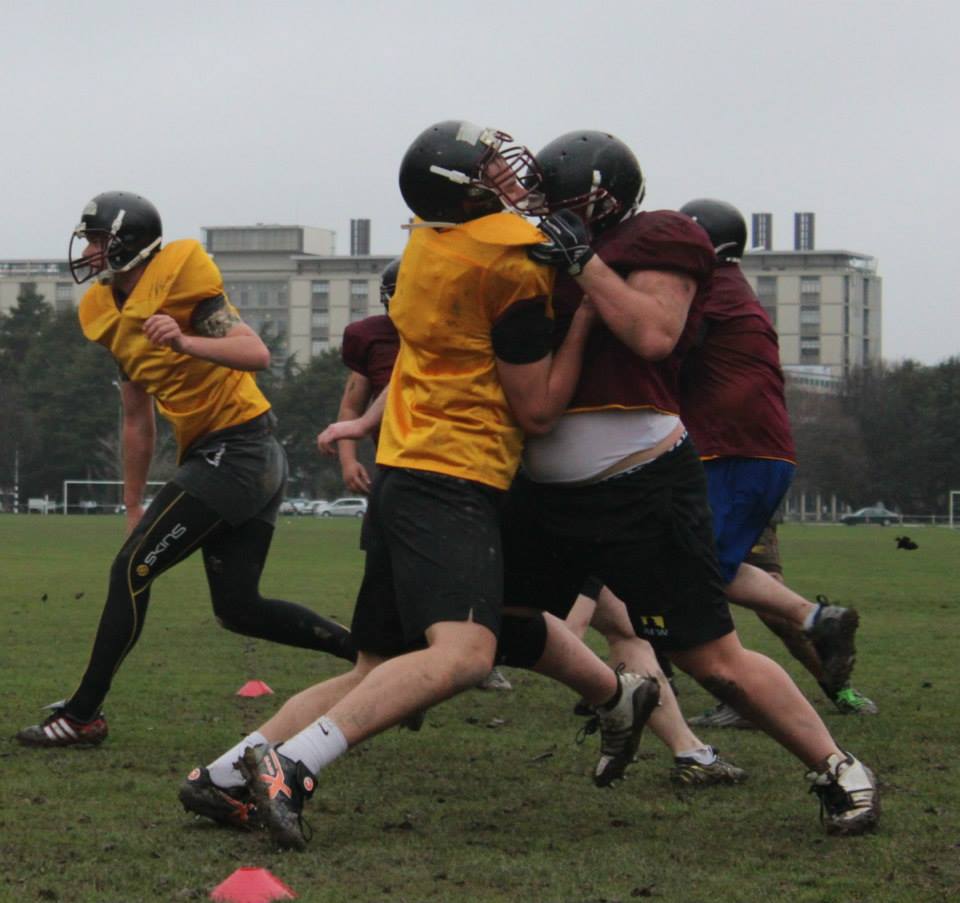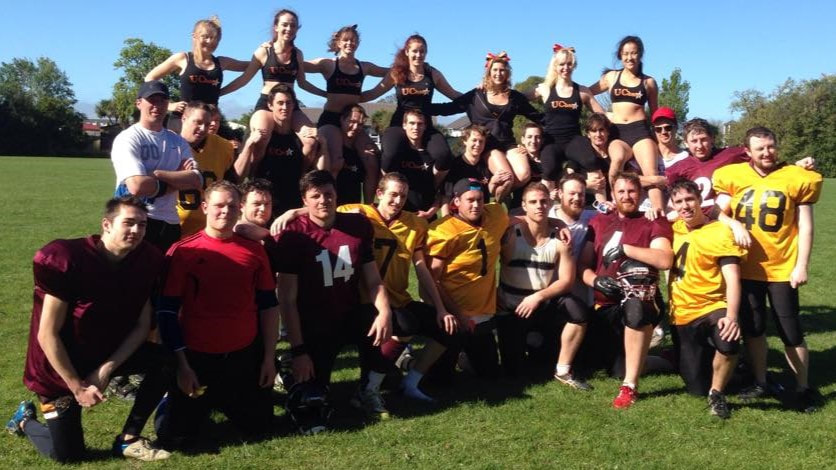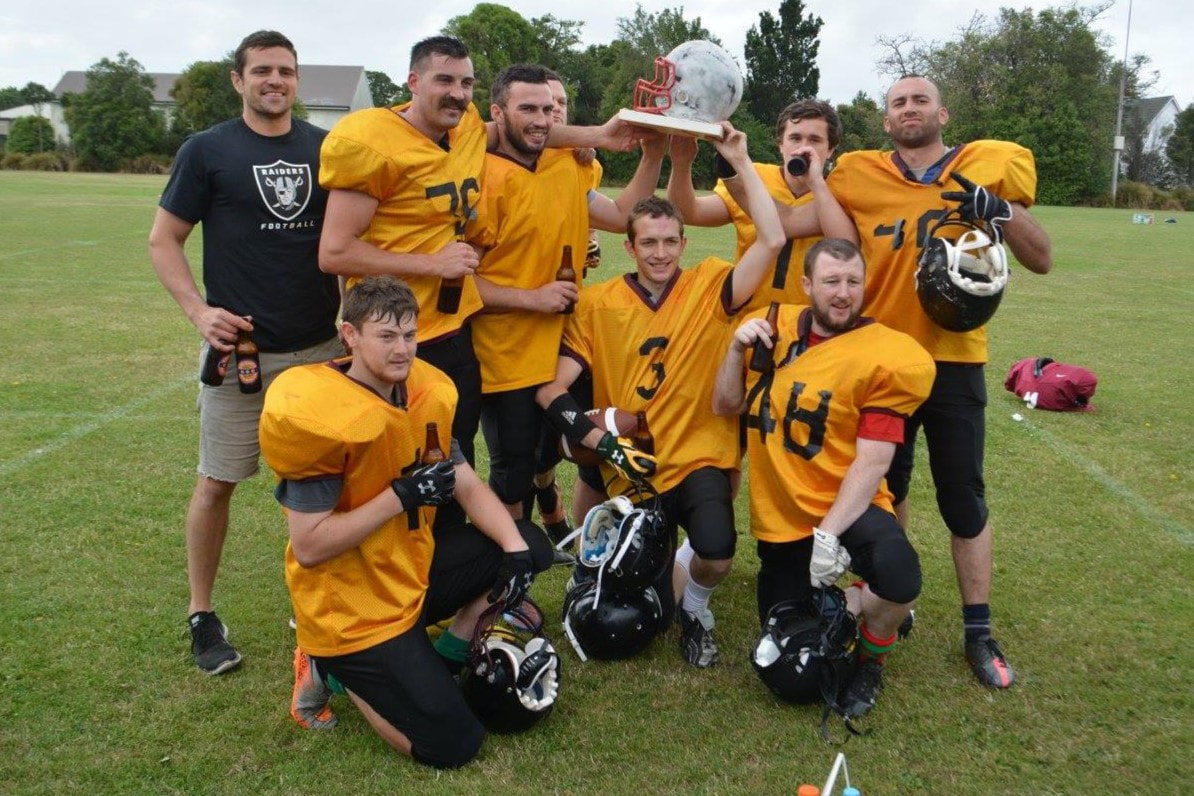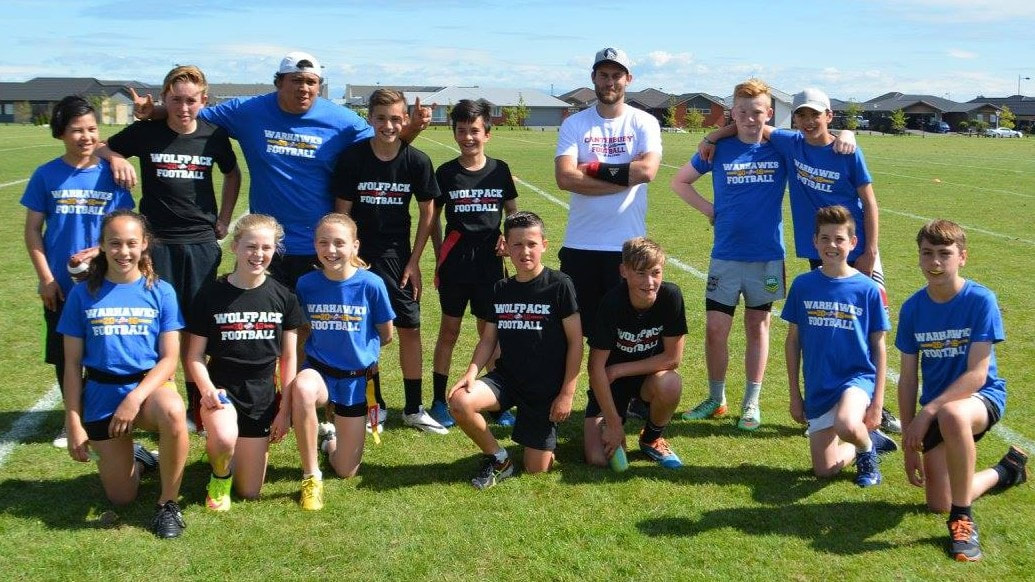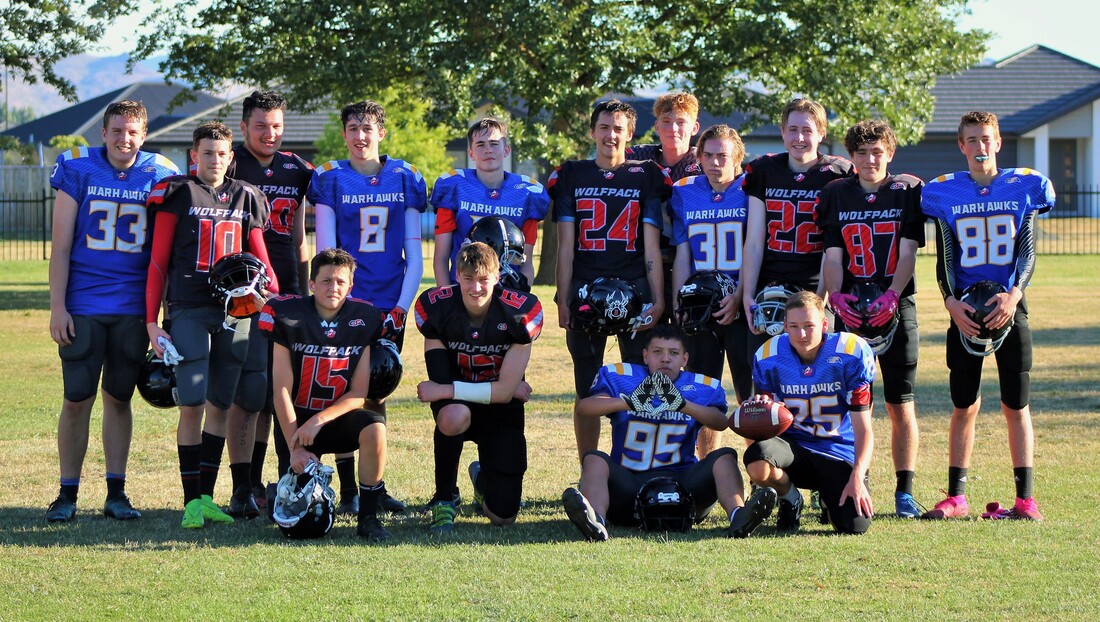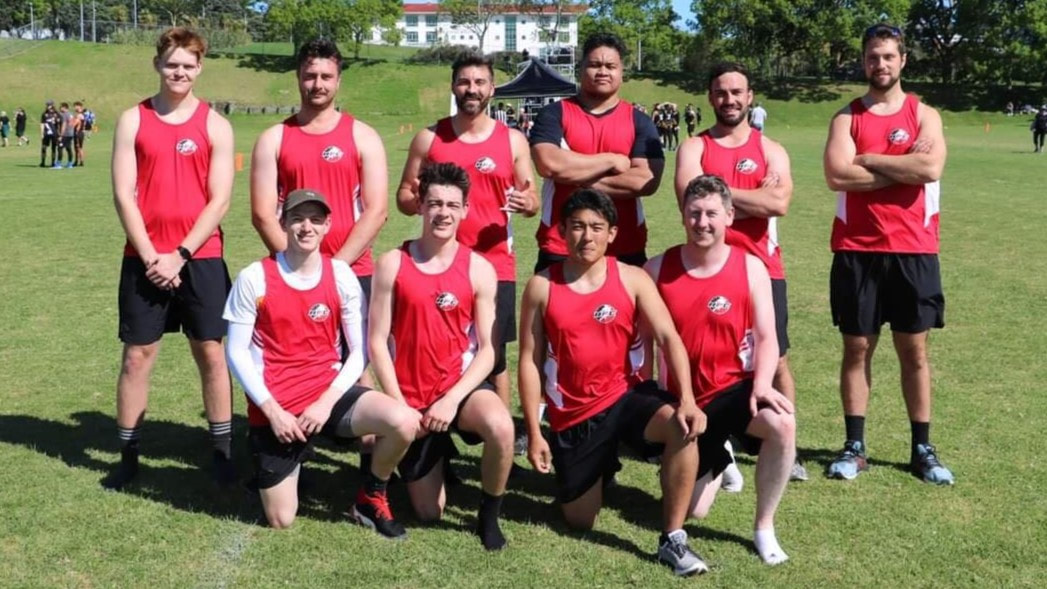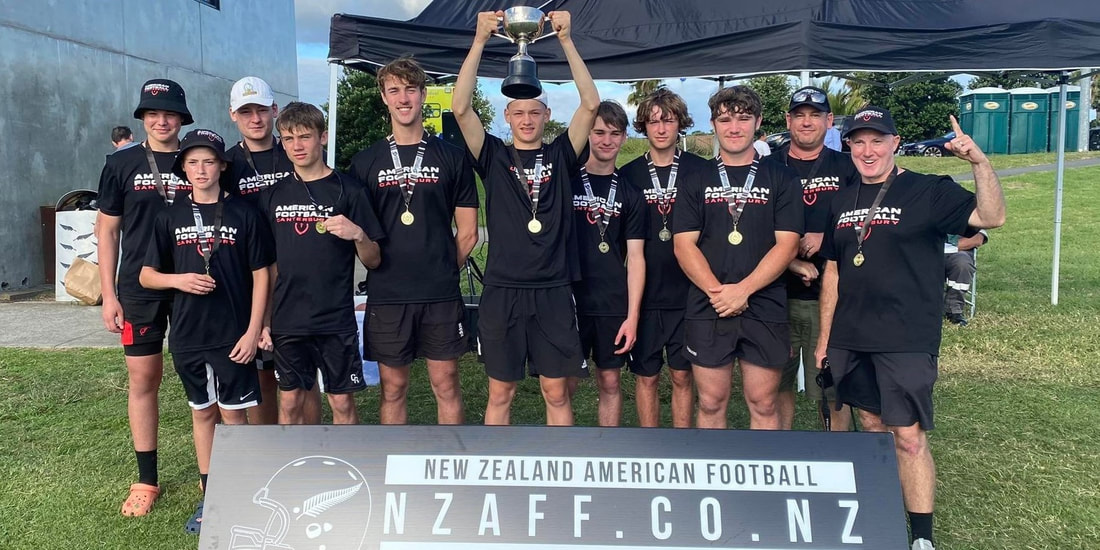OUR HISTORY
|
American Football Canterbury originally started in 2010 as a university social club under the banner of ‘GridironSoc’, transitioning to ‘University of Canterbury American Football’ in 2011. Created by founding father Jono Entwistle, it began with a group of
likeminded students hosting weekly flag football games on Ilam Fields at the University of Canterbury. The rules and games were rough to say the least, but as interest grew, so did the sport itself, leading to the creation of new teams and various competitions being staged. The 2012-2013 seasons witnessed substantial change, with the establishment of American Football Canterbury Inc, led by stalwarts Brad Cottam and Mase Shaw. During these seasons full contact football was also introduced. After many months of fundraising, AFC was able to purchase some old pads and helmets from the States and enlisted a local ex-NCAA Division 1 College and Arena Football League coach to help teach them the sport. A 5-a-side version of contact football was adopted. Adapted from 7-a-side football, it allowed for shorter, enjoyable games to be played by less numbers. Ideal for a programme in its infancy. 2014 signalled the un-official beginning of the coveted AFC Championship with foundation teams, the Warhawks and Rebels competing in the inaugural season. However, 2015 is considered the first “official” season of the AFC Championship, with the introduction of another cornerstone team, the Wolfpack, joining the original two teams to create a three-team championship. In 2016, AFC moved from its original home at Ilam Fields to its new headquarters at Te Kahu Park in Wigram, after a brief stint at Addington Park. 2016 also saw AFC turn its attention to promoting the sport to a younger audience. Firstly, by establishing AFC’s first American Football camp for kids run by Coach Mase Shaw during the school holidays. From this camp, two teams were selected to play in the first ever Junior flag football game between the Junior Pack and the Junior Hawks. The two teams meeting in the curtain raiser to the 2016 AFC Championship game. The following year, Junior player numbers grew exponentially, resulting in the creation of New Zealand’s first ever Junior flag football competition. This initial 10-team competition set the platform for the extremely popular Canterbury Junior Flag Football Championship that is played today by an ever-increasing number of Junior players. AFC further expanded in 2019. This time Coach Shaw introduced a full contact Youth programme for teenagers. During the proceeding years, the programme grew and developed, going from two teams in its first year to a four-team competition in 2022, competing for the Canterbury Youth American Football Championship. Also in 2022, a flag football competition was added to the Youth programme. Since those early days of AFC, flag football had continued to be played over the years, in a variety of competitive and social competitions. In 2017, the first ever AFC representative team was selected to host the Nelson Honey Badgers (led by AFC founder Jono Entwistle). In 2020, the AFC representative team attended the New Zealand Flag Football Championship for the first time. Since then, the AFC flag football team has shown it can compete with the best in the country, finishing as runners up in both 2022 and 2023 and supplying a number of players to the national men's New Zealand Mako flag football team. In 2023, AFC also sent a Youth representative team to the national flag football tournament, who successfully managed to take out the national title in their very first attempt. One of the most significant changes to AFC also occurred in 2023, when the organisation went through a major rebranding exercise, introducing the Canterbury Panthers as their new name and logo for all their flag and contact representative teams, from Juniors through to Seniors. A driving factor behind this change was to align the various programmes run by AFC under one unifying banner. |

